In 2019, human rights lawyer, Eve Lester, approached Cogent with an idea – to use a 360-degree feedback model to increase the visibility of the living conditions in immigration detention centres around the world. Eve very literally wrote the handbook on how living conditions in immigration detention should be monitored and assessed against international human rights law – and the power of digital to amplify its effectiveness is what we set out to help with.
Matt drove the research and design for Bonigi – providing evidence to inform and underpin the product strategy – all in under 4 weeks. With the clarity of customers, and the clear vision for the product provided by Matt’s work, Bonigi later secured a Myer Innovation Fellowship grant to help take the product further. Matt also remained on the Board of Advisors for Bonigi, contributing his deep digital design and product experience whilst also helping with future funding and grant proposals.
Design methods
Gathering information on immigration detention is not easy – in fact, it’s easier in some countries than others. It was critical that the team building the MVP for Bonigi’s crowd-sourced data solution understood the relationships between different political entities across the world – how they interact, when, and why. Matt’s expertise in system-thinking provided a simple, clear, and compelling way for the team to get their heads around what is an infinitely complex domain.
Documenting the complex relationship between political and private entities involved in immigration detention was critical for the team to start to understand the problem that the founder has been trying to solve for over 20 years.
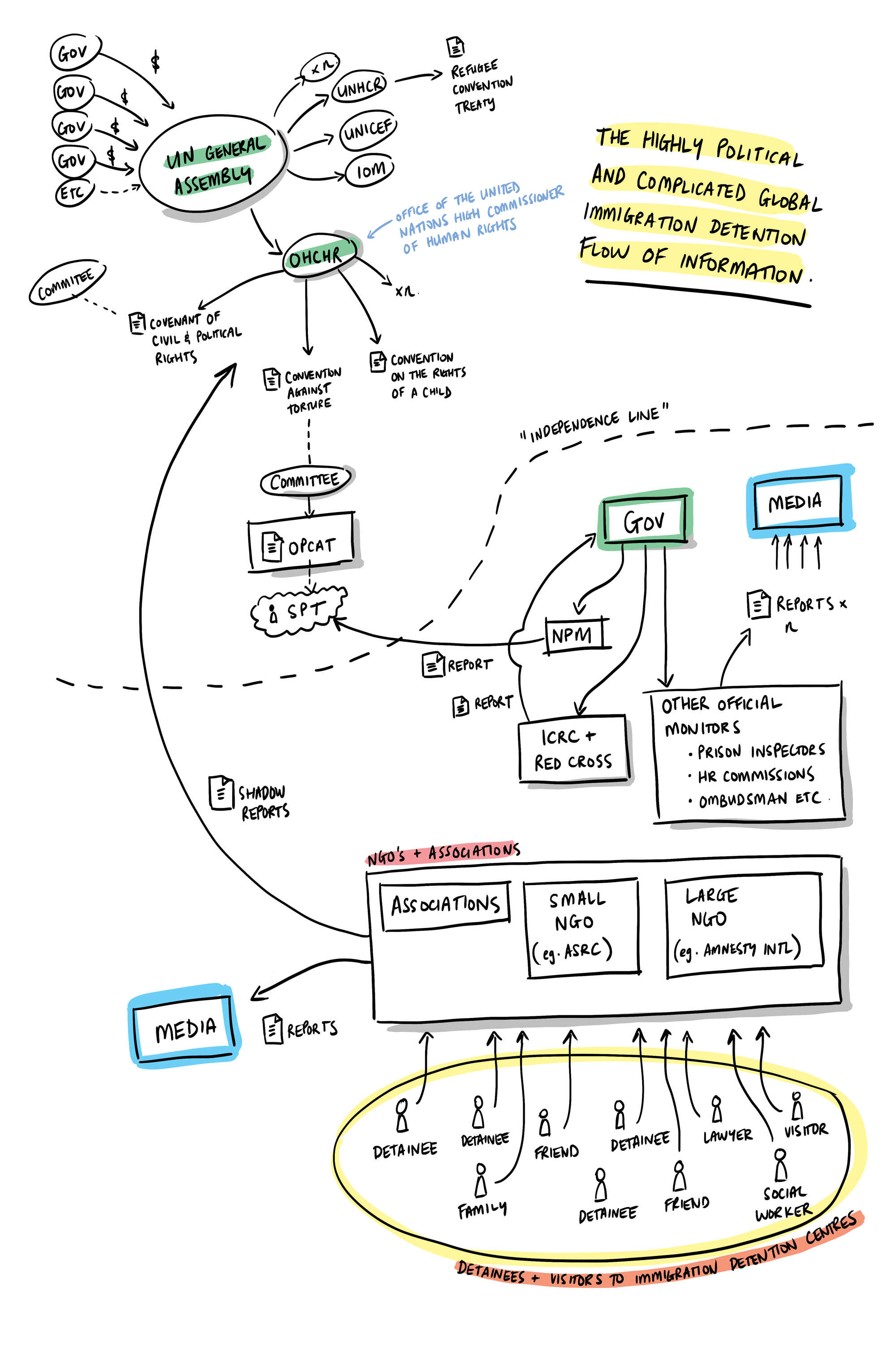
Matt, Eve (Founder) and Patrick (Developer) discuss the complexity of immigration detention monitoring & reporting across international lines

There is no precedent for Bonigi. The closest model that exists are essentially prison inspectors whose job it is to visit immigration detention facilities and record and report what they find. Through Matt’s years of experience in research (interviewing people globally for this project), a model for data collection, and who, within reasonable expectations, would be able to contribute, were found:
As with any best-in-class research process, clear insights emerged from the process that uncovered the needs, barriers and painpoints of each possible segment who might collect data for Bonigi. The challenge was how they would be able to do this effectively, given the constraints and rules in place for visiting immigration detention centres.
Reyling on the highly-collaborative and effective design process, Matt facilitated the team (product managers, engineers, and the founder) through the findings, and how they might use those insights to generate a solution for data collection within immigration detention centres.
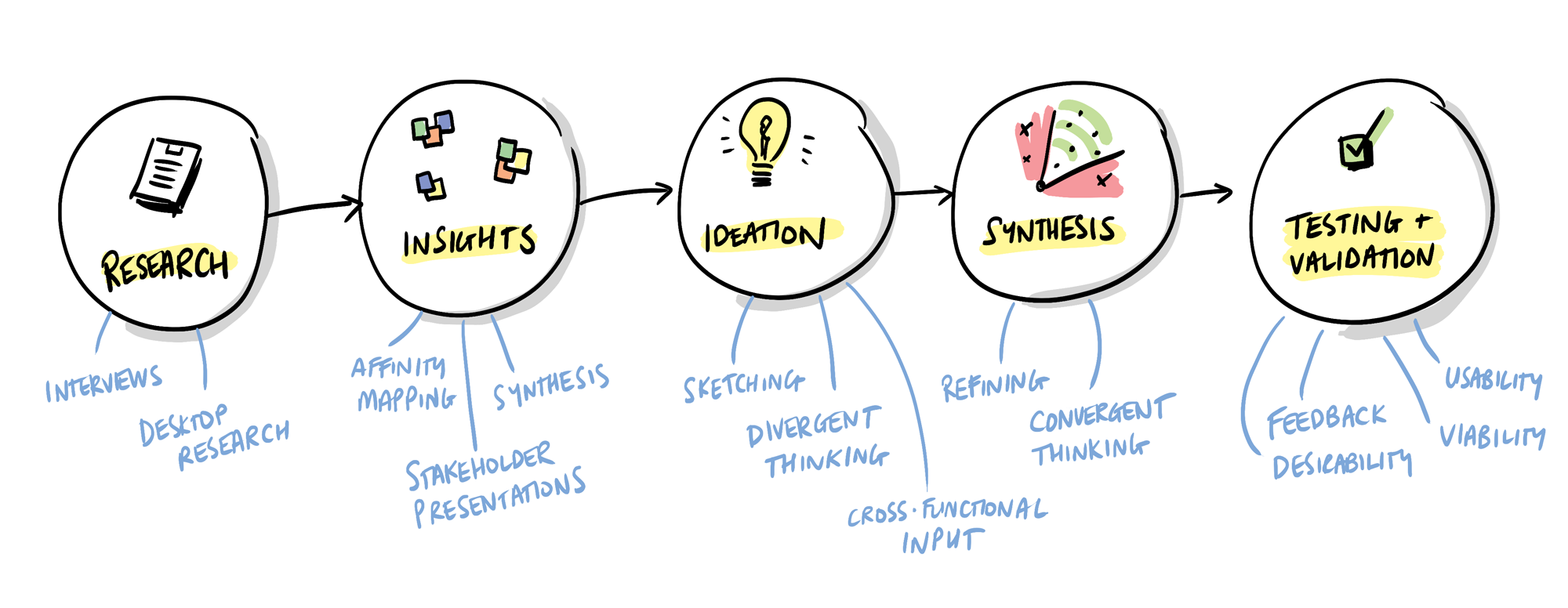
For Bonigi to be successful in it’s data collection goals, and desirable for lay visitors to immigration detention centres, care had to be taken in designing and application that minimized use of written language and focussed on accuracy of information through visual comparison. Lay visitors don’t get to take ‘notes’ or ‘photos’ to capture the living conditions within immigration detention centres so the data collection needs to happen immediately after a visit. All the while remaining anonymous – any leak of privacy may endanger the lives of their loved ones or their own lives (depending on which country the centre is in).
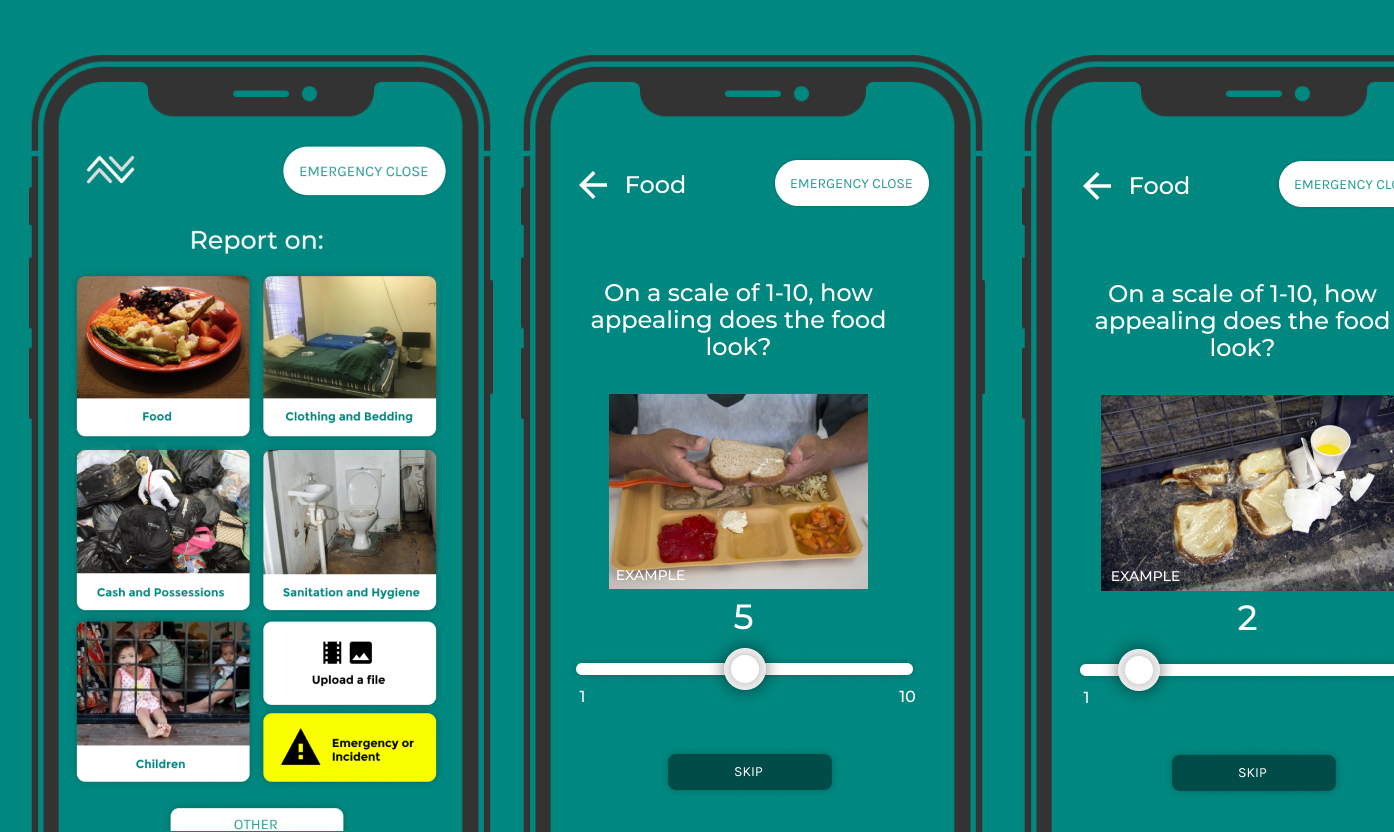
As data was the key requirement for Bonigi to function as a product and business, Matt’s lateral thinking pushed the team to arrive at a novel, ML-led solution. This work is currently confidential and can be discussed in person.
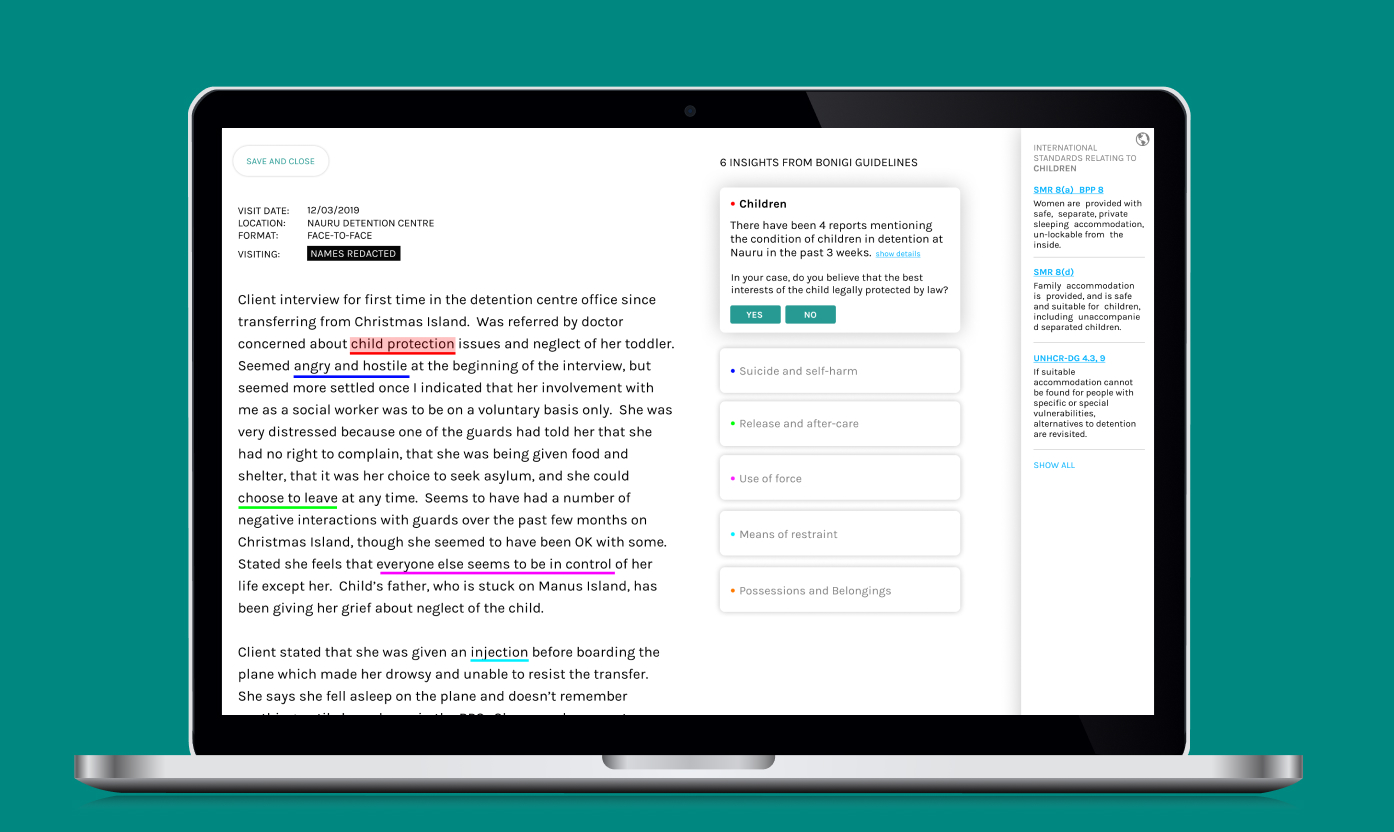
A key component of the business model and effectiveness of the Bonigi platform to achieve the vision was the analysis and dissemination of aggregated data across the world. The more data, the more transparency. The more transparency, the more accountability. With the innovation of crowd-sourced data, collected from the bottom up, Bonigi was uniquely placed to provide a platform that solved huge human rights issues and gave global visibility to the worst and best of policy and governmental oversight.

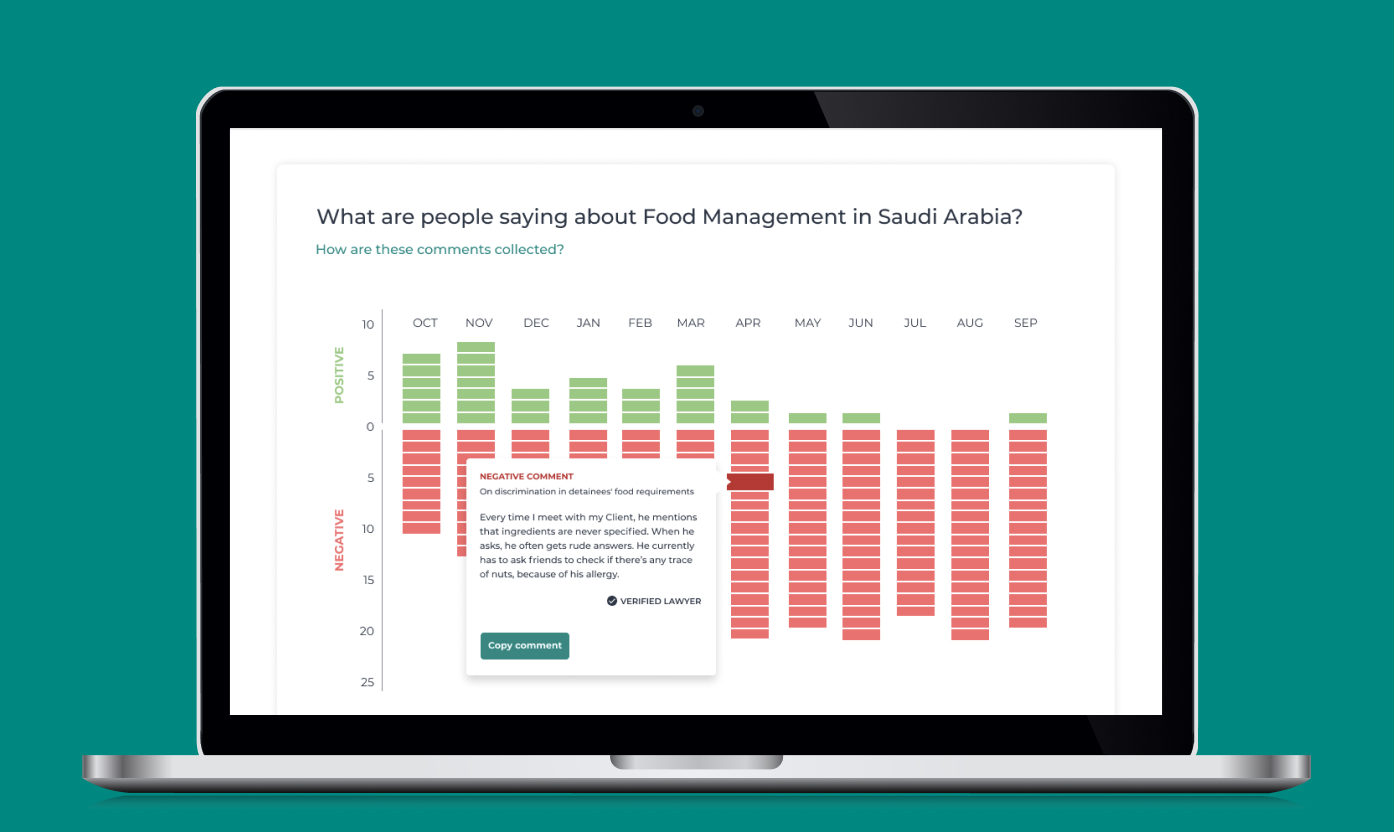

The power of capturing more data on the living conditions within immigration detention centres is self-evident but Bonigi’s vision is a world where the world recognises that there are viable and valid alternatives to immigration detention. In fact, Eve’s end goal is for a world that abolishes the practice completely. Matt and the team at Cogent facilitated a process and invented a product strategy that connected this early-stage MVP with that ultimate goal over 4 horizons.
For any business to succeed, it needs revenue – revenue to support the underlying development of the platform and the team to continually support it. There were several viable options for revenue and funding for Bonigi to explore including a self-sustaining model where organisations pay to access the data collected by Bonigi, and also a social business model, where Bonigi is funded by independent human rights organisations because of the human good of the platform. This is something Eve would explore further in her prestigious Myer Innovation Fellowship.

With the outcomes of this work, Eve Lester went on to become a recipient of the Myer Innovation Fellowship and received 12-months of funding and support from the organisation to progress her product.
Matt continues to support Eve Lester in her journey through Bonigi as a member of the Australian advisory board. At the time of writing, the project is currently on hiatus as Eve contributes important research using her extensive knowledge of immigration rights of Cambodian refugees however the ‘lightweight’ MVP – an online immigration detention standards navigator – is available and free to use for all.

A 20+ year collection of design artefacts

Australian Red Cross

Covidence

World Mosquito Project

Bonigi Monitoring

Chargefox

NSW Dept. of Primary Industries

Department of Climate Change, Energy, Environment, and Water

Cogent

GoodHuman

WWF